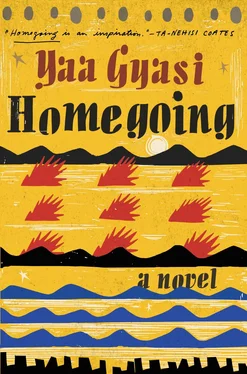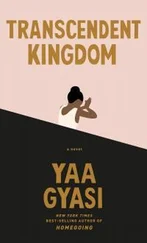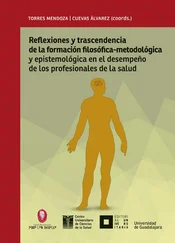“I’ll go see my mama,” he promised when she left the front door swinging.
—
Sonny kept a glassine bag of dope in his shoe. It was a reassurance. He walked the many blocks between his house and his mother’s house with his big toe clenched around the bag as though it were a small fist. He’d clench it, then release it. Clench it, then release it.
As Sonny passed the projects that filled the distance between his apartment and Willie’s, he tried to remember the last time he’d really spoken to his mother. It was 1964, during the riots, and she had asked him to meet her in front of her church so that she could lend him some money. “I don’t want to see you dead or worse,” she’d said, passing Sonny what little change hadn’t made it into the offering plate. As he took the money, Sonny had wondered, What could be worse than dead? But all around him, the evidence was clear. Only weeks before, the NYPD had shot down a fifteen-year-old black boy, a student, for next to nothing. The shooting had started the riots, pitting young black men and some black women against the police force. The news made it sound like the fault lay with the blacks of Harlem. The violent, the crazy, the monstrous black people who had the gall to demand that their children not be gunned down in the streets. Sonny clutched his mother’s money tight as he walked back that day, hoping he wouldn’t run into any white people looking to prove a point, because he knew in his body, even if he hadn’t yet put it together in his mind, that in America the worst thing you could be was a black man. Worse than dead, you were a dead man walking.
Josephine answered the door. She cradled her baby girl in one arm and her son held her other hand. “You get lost or somethin’?” she asked, shooting him a dirty look.
“Behave,” his mother hissed from behind her, but Sonny was glad to see his sister treating him the same way she always had.
“You hungry?” Willie asked. She took the baby from Josephine and started walking toward the kitchen.
“I’ma use the bathroom first,” Sonny said, already making his way over. He closed the door and sat on the commode, pulling the bag from his shoe. He hadn’t been there a minute, but he was already nervous. He needed something to tide him over.
When he came back out, his mother had already fixed him a plate. His mother and sister watched him while he ate.
“Why you ain’t eating?” he asked them.
“Because you ’bout an hour and a half late!” Josephine said through gritted teeth.
Willie put an arm on Josephine’s shoulder, then pulled a little money out from inside her bra. “Josey, why don’t you run go get these kids something?” she said.
The look Josephine sent Willie hurt Sonny more than anything she had said to him yet. It was a look that asked if Willie would be safe left alone with him, and the uncertain nod Willie gave back just about broke Sonny’s heart.
Josephine collected her children and left. Sonny had never seen the baby before, though his mother had come to tell him about the birth. The toddler Sonny had seen once, when he passed Josephine on a quiet street one day. He’d kept his head down and pretended not to see them.
“Thanks for the food, Mama,” Sonny said. He was almost finished with his food, and he was starting to feel a little sick from eating so fast. She nodded and heaped another helping onto his plate.
“How long it been since you ate something proper?” she asked.
Sonny shrugged and his mother continued to watch him. He was uncomfortable again; the small hit he took was wearing off too quickly, and he wanted to excuse himself to go do more, but too many trips to the bathroom would only make her suspicious.
“Your father was a white man,” Willie said calmly. Sonny nearly choked on the chicken bone he had been working over. “You used to ask me about him, long time ago, and I ain’t never told you nothing, so I’m tellin’ you now.”
She got up to pour a glass from the pitcher of tea she kept by the sink. She drank the whole glass of tea while Sonny watched her back. When she finished that glass, she poured herself another and took it back to the table.
“He didn’t start out white,” she said. “He was black when I met him, more yellow than black, really. But still, he was colored.”
Sonny coughed. He started fingering the chicken bone. “Why you ain’t told me before?” he asked. He could feel himself getting angry, but he held it back. He had come here for money, and he couldn’t fight with her now. Not now.
“I thought about tellin’ you. I did. You saw him once. Day we walked all the way to West 109th Street, you remember that? Your daddy was standing across the street with his white woman and his white baby, and I thought maybe I should tell Carson who that man is, but then I figured it’d be better just to let him go. So I let him go, and we went back to Harlem.”
Sonny snapped the chicken bone in half. “Mama, you shoulda stopped him. You shoulda told me, and you shoulda stopped him. I don’t know why you always lettin’ people walk all over you. My father, Eli, the goddam church. You ain’t never fought for nothin’. Not nothin’. Not a day in your life.”
His mother reached across the table, put her hand on his shoulder, and squeezed hard until he had to look her in the eyes. “That ain’t true, Carson. I fought for you.”
He returned his eyes to the two pieces of chicken bone on his plate. He toed the bag in his shoe.
“You think you done somethin’ cuz you used to march? I marched. I marched with your father and with my li’l baby all the way up from Alabama. All the way to Harlem. My son was gon’ see a better world than what I saw, what my parents saw. I was gon’ be a famous singer. Robert wasn’t gon’ have to work in a mine for some white man. That was a march too, Carson.”
Sonny started looking toward the bathroom. He wanted to excuse himself and finish up the bag in his shoe. He knew it would probably be the last he could afford for a long, long while.
Willie cleared his plate and refilled her tea. He could see her standing at the sink, drinking in long, deep breaths, her chest and back rising and falling as she tried to collect herself. She came back and sat down right in front of him, looking at him all the while.
“You was always so angry. Even as a child, you was angry. I used to see you lookin’ at me like you was like to kill me, and I didn’t know why. Took me a long time to figure out that you was born to a man who could choose his life, but you wouldn’t never be able to choose yours, and it seemed like you was born knowing that.”
She took a sip of her drink and stared off into space. “White men get a choice. They get to choose they job, choose they house. They get to make black babies, then disappear into thin air, like they wasn’t never there to begin with, like these black women they slept with or raped done laid on top of themselves and got pregnant. White men get to choose for black men too. Used to sell ’em; now they just send ’em to prison like they did my daddy, so that they can’t be with they kids. Just about breaks my heart to see you, my son, my daddy’s grandson, over here with these babies walking up and down Harlem who barely even know your name, let alone your face. Alls I can think is this ain’t the way it’s s’posed to be. There are things you ain’t learned from me, things you picked up from your father even though you ain’t know him, things he picked up from white men. It makes me sad to see my son a junkie after all the marchin’ I done, but makes me sadder to see you thinkin’ you can leave like your daddy did. You keep doin’ what you doin’ and the white man don’t got to do it no more. He ain’t got to sell you or put you in a coal mine to own you. He’ll own you just as is, and he’ll say you the one who did it. He’ll say it’s your fault.”
Читать дальше

![Ally Carter - [Gallagher Girls 01] I'd Tell You I Love You But Then I'd Have to Kill You](/books/262179/ally-carter-gallagher-girls-01-i-d-tell-you-i-lo-thumb.webp)










